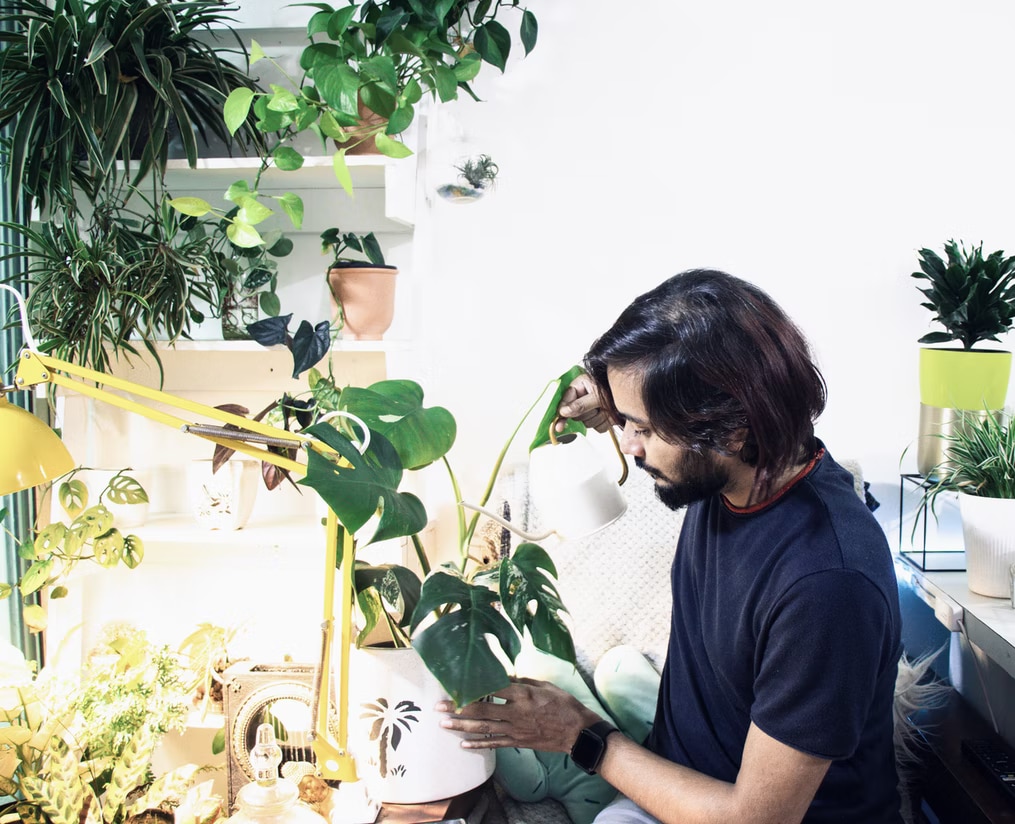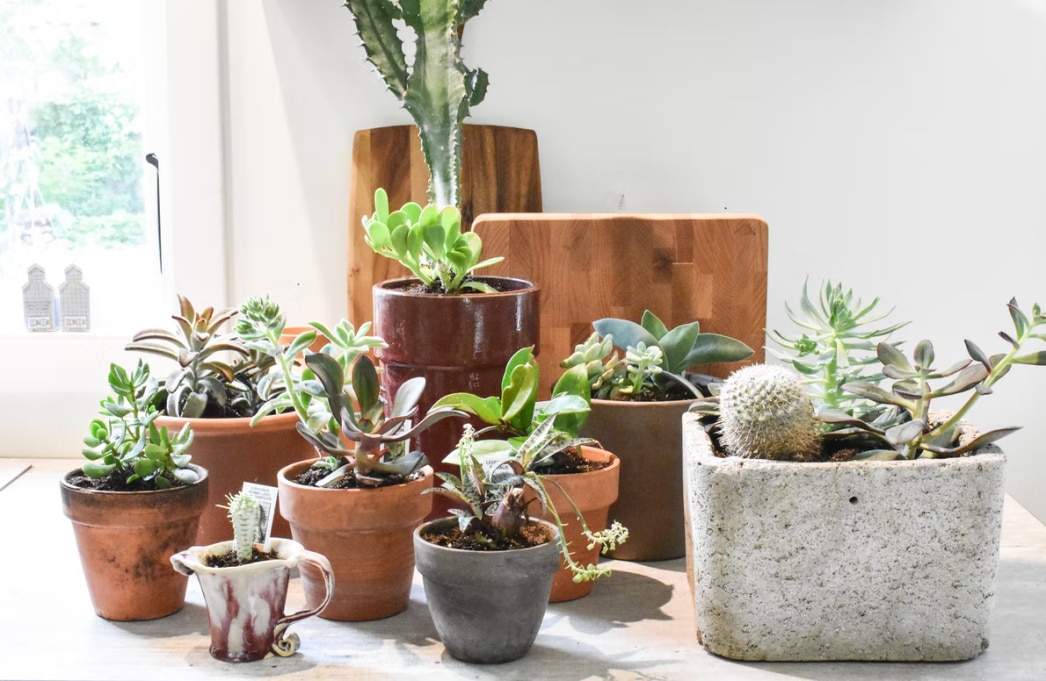If you're looking for an easy way to boost your wellbeing, adding plants to your home and office may be the answer. From air-purifying qualities to positive mental health effects, there are many - surprising - benefits of having plants in your personal and professional spaces. And you don’t need to have gardening experience, lots of space and light or even a great memory for watering schedules to benefit! Read on to discover the advantages of having indoor plants and find out how you can benefit.
What are the benefits of houseplants?
While houseplants may seem like a simple decoration, they can actually have a profound impact on your wellbeing. Studies have shown that interacting with plants can help to reduce stress and anxiety, improve your mood, and promote concentration. In addition, houseplants help to purify the air, removing harmful toxins and improving indoor air quality. If you're looking for a way to boost your health and create a more inviting space, consider adding some houseplants to your home or office. From peace lilies to philodendrons, there are hundreds of varieties to choose from, even for gardening novices.
Houseplants improve air quality
Not only do plants convert the carbon dioxide we exhale into fresh oxygen, they also remove toxins from the air. A famous NASA experiment (1989) found that indoor plants can remove cancer-causing organic compounds like formaldehyde and benzene from the air. This is especially important given that studies have shown that over 4 million people globally die prematurely every year from indoor air pollution.
House plants can have a positive impact on your health
Research has shown that indoor plants can have huge benefits for your physical and mental health. One study found that when houseplants were introduced into the workplace, tension and anxiety amongst workers was reduced by 37%, as well as having a positive impact on wellbeing and performance. Another study showed that indoor plants can also reduce fatigue and headaches by 20% - 25%.
Taking care of your plants can help you to relax and relieve stress
Gardening can provide a huge boost to your mood and mental health. The link between nature and wellbeing means that bringing the outside in can help you to find a sense of calm and joy.
Taking the time to water your plants, dust their leaves and occasionally repot them as they grow, can bring a huge sense of achievement and allow for a few mindful moments which can help us unwind and relax.

Plants can help to create a positive environment
Adding a few houseplants to your home or office space can boost your mood and improve the decor. Creating a positive environment both in the areas which you use to relax and also in your productive workspace can improve your focus, mood, and general wellbeing. There are plants to go with every interior, from tiny succulents to large sweeping palms.
Many plants are very easy to care for
Committing to a houseplant - or three - might feel like a big undertaking. What will you do with your plant when you go on holiday? What if you forget to water it? But actually there are plenty of houseplants which are very easy to care for and still look beautiful. Read on for some examples of undemanding indoor plants which will help you to tap into the benefits of houseplants without the huge commitments which come with temperamental species.
Examples of beautiful, easy-to-maintain houseplants for your office and home:
There are beautiful houseplant options for every space and every level of gardening experience.
If you're looking for a low-maintenance option, consider succulents or cacti. These hardy plants can thrive with minimal watering - so there’s no pressure if you forget to water them once or twice - and they make a great addition to any home.

If you prefer something larger and leafier, a cheese plant or zz plant are great options. Both are very easy to care for, require only semi-regular watering and can grow to a considerable size.
For shadier spots, snake plants work very well and require minimal watering - in fact, snake plants prefer to be a little neglected!
Parlour palms and peace lilies combine aesthetic appeal with a reasonable watering schedule and unfussy demands in regards to light.
For the more experienced gardener, bonsai trees add a flair of the dramatic, but can be very temperamental, so avoid the bonsai at the start of your indoor gardening journey.
Tips for keeping your plants healthy and thriving:
#1 Start with simple, easy-care indoor plants before committing to more adventurous plant options.
#2 Use an app such as Planta to remind you to water your plants.
#3 Research and experiment to find the ideal light conditions for your plants.
#4 Fertilise your plants in the spring and summer (or as according to the care instructions that came with your plant).
#5 Repot your plants once a year - or when the roots become too compact and start to grow out of the holes in the bottom of the plastic pot.